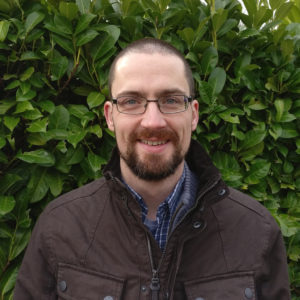Interactions: David Abergel
Published in Physics

What made you want to be a physicist?
When I was a kid, I was really into astronomy, so I guess I’ve always had an inclination towards science. Then, as a teenager, I read John Gribbin’s In Search of Schödinger’s Cat. I loved it. The vivid picture he painted of how quantum mechanics works, how it’s so different from the classical world that we experience, and most importantly how we can use maths to understand it had me hooked. From that point on I never wanted to be anything else.
If you weren’t a physicist, what would you like to be (and why)?
I would probably have ended up as a forensic scientist working for the police. I’m sure it’s nowhere near as cool as it looks on TV, but the idea of trying to piece together a lot of small clues to provide evidence for case seems like a really interesting type of problem solving.
What would be your (physics) superpower?
Getting code to compile first time!
What’s your favourite (quasi-)particle?
Undoubtedly the Cooper pair. I find it counterintuitive that the jiggling of an atomic lattice can make two negatively-charged electrons ‘stick’ together. And the fact that there is most likely a completely different mechanism that we don’t understand going on in high-Tc superconductors is a fascinating mystery.
What Sci-Fi gadget / technology would you most like to have / see come true (and why)?
Apart from the obvious ones like time travel and teleportation, I want someone to come up with a material that is soundproof, but allows cool air through. It would be the perfect window covering for warm summer nights.
Which physicist would you like to see interviewed on Interactions — and why?
Is this like one of those facebook things where you have to nominate five of your friends to keep the game going??!! But more seriously, seeing as he kind-of came up with the idea, I want to hear what Lev Landau’s favourite quasiparticle is.
Follow the Topic
-
Nature Physics

This journal publishes papers of the highest quality and significance in all areas of physics, pure and applied.



Please sign in or register for FREE
If you are a registered user on Research Communities by Springer Nature, please sign in